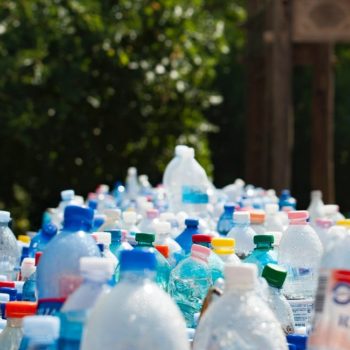Food and drink industry commits to the “circular economy of packaging”

How long before we can officially say progress is being made? We're seeing steps being taken here and there and everywhere to reduce, reuse and recycle, and every step helps. This week, Food Drink Ireland (FDI) reaffirmed its commitment to the "circular economy" of packaging, including a call for improved national recycling infrastructure, including segregated street bins for recycling.
27 November 2018
This week, Food Drink Ireland (FDI), the Ibec group that represents the food and drink industries, hosted an industry briefing on the future of plastic packaging and reaffirmed its commitment to the “circular economy” of packaging. The event highlighted Ireland’s collection rate of 82% of plastic packaging, while industry representatives took the opportunity to call for improved national recycling infrastructure including segregated street bins.
“Packaging is essential in bringing many food and drink products to our tables,” said Linda Stuart-Trainor, FDI’s director of prepared consumer food. “It helps reduce food waste and protects quality and freshness. However, the environmental impact of avoidable household food waste is eight times greater than the impact of total packaging waste going to landfill.”
At the event, the Food Safety Authority of Ireland explored the important safety concerns when it comes to packaging materials that are in contact with food and outlined the regulations that producers must adhere to. Teagasc highlighted the role of innovation in the future of packaging and the research technology available in the new Prepared Consumer Foods Centre. Kerry Foods and Musgrave shared producer and retailer perspectives.
“Our existing waste packaging collection and recycling scheme in Ireland – Repak – receives multimillion-euro funding from food and drinks companies,” Trainor continued. “Before industry began funding Repak, over 90% of all packaging went to landfill. Now less than 10% goes to landfill. Providing segregated recycling bins in public would reduce on-the-go littering while increasing recycling rates.”



 Print
Print




Fans 0
Followers